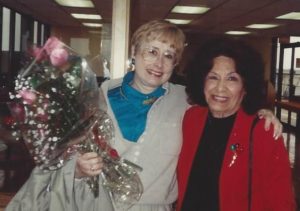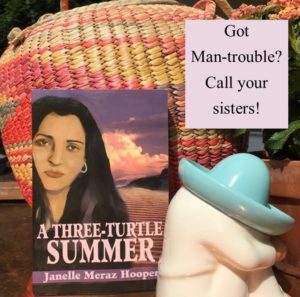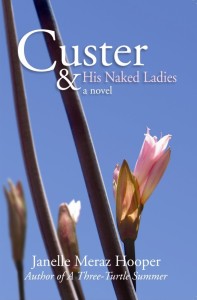A few opening lines from my novel A Three-Turtle Summer. Paperback and Kindle on Amazon. Paperback at Barnes & Noble.
1. A Sister in Trouble
Fort Sill, Oklahoma, July 1949
It was too hot to play cards, especially if someone was keeping score, and Vera was.
“Ay, carumba! You can’t stand to go two hours without beating someone at something can you?” Grace Tyler playfully pouted.
Vera ignored her little sister, and began shuffling cards as she gleefully announced, “Senoras, the game is canasta, and we’re going to play according to Hoyle.” She began to deal the cards like a Las Vegas gambler while Pauline laughed and pointed at her mother, a notorious and frequent card cheater.
Everyone was hot, but in her long-sleeved shirt and long skirt, Grace was sweltering. Sweat beaded up on her forehead and neck and she kept stretching her legs out because the backs of her knees stuck to her skirt.
“Gracie, for God’s sake, go put some shorts on,” Vera said.
Grace ignored her sister, pulled her shirt away from her perspiring chest, and asked, “Anyone want more iced tea before Vera whips the pants off of us?”
Momma and Pauline both nodded and Grace poured tea over fresh ice cubes while Vera got a tablet and pencil out of her purse.
The room was almost silent as each woman arranged her hand. Only Momma barely tapped her foot and softly sang a song from her childhood under her breath:
“The fair senorita with the rose in her hair …
worked in the cantina but she didn’t care …
played cards with the men and took all their loot … awh-ha!
went to the store and bought brand new boots … ”
“Awh-Haaa!” Grace’s five-year-old daughter Glory joined in.
Unconsciously, the other two women started to hum along while they looked at their hand. About the second “Awh-Haaa!” Vera abruptly stopped humming and looked at her sisters with a raised eyebrow. Something was fishy; Momma was much too happy. Barely containing their amusement, they watched as she cheerfully arranged her cards.
Finally, unable to suppress her laughter any longer, Vera jumped up, snatched the cards out of her mother’s hands, and fanned them face-up across the table.
“Ay, ay, ay!” She cried out, “Momma, tell me how can you have a meld and eleven cards in your hand when we’ve just gotten started?”
The fun escalated as Vera rushed around the table and ran her hands all around her mother and the chair she sat on to feel for extra cards.
“Stand up!” Grace and her sisters said as they pulled their mother to her feet. They shook her blue calico dress and screamed with laughter as extra cards fell from every fold.
“Glory,” Vera told her young niece, “crawl under the table and get those cards for your Auntie Vera, okay?” Grace moved her feet to the side so that Glory could scramble under the table. Her childish giggles danced around the women’s feet as she scrambled for the extra cards that dropped from her grandmother’s dress.
“Momma,” Vera laughed, “you’re a born cheater. How did you know we were going to play cards today?” she asked.
“I’m not the only one in this family who’s been caught with a few too many cards,” Momma said in her defense.
“Yes, but you’re the family matriarch. We expect better of you than we do our good-for-nothing brothers,” Pauline said.
“Huh! Matriarch, my foot. You girls never listen to a word I say,” Momma grumbled.
“Maybe that’s because we can’t trust you,” Vera said.
As another card dropped from Gregoria’s dress and slid across the floor, Vera added, “We’ll strip you down to your rosary before we ever play cards with you again, Momma.”
“Yeah,” Pauline, chimed in, “the next time you’ll play in nothing but your lace step-ins and a bra made from two tortillas.”
“Well, at least I’ll be the coolest one at the table,” Momma chirped.
Vera reached across the table to gather all the cards and reshuffle them. “We’re going to start all over, and we’ll watch you every minute.”
Grace felt a sharp pain in her stomach when she looked up and saw her husband’s scowling face through the screen door. Why was he home so early? She didn’t have to look at him again to know his normally handsome blond features smoldered with disgust…
See my books and stories here: https://www.amazon.com/author/janellehooper
![]() Please share this post! My thanks, Janelle
Please share this post! My thanks, Janelle
Visiting my mother in Lawton, Oklahoma
A long time ago! A Three-Turtle Summer,
fictional autobiography,
was written about our life with my father.





